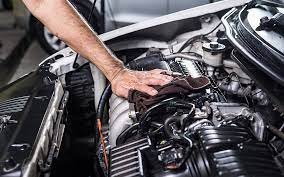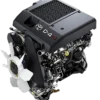The differences between new, remanufactured, and used Nissan engines
Exploring the Variances: The differences between new, remanufactured, and used Nissan engines
In the realm of automobile maintenance, the engine stands as the beating heart of every vehicle. When it comes to replacing a Nissan engine, car owners often face the dilemma of choosing between new, remanufactured, and used options. Each choice comes with its own set of benefits and considerations, catering to different needs and budgets. In this comprehensive guide, we’ll delve into the divergences between new, remanufactured, and used Nissan engines, aiding you in making an informed decision.
New Nissan Engines:
A brand-new Nissan engine guarantees pristine quality and optimal performance. Manufactured directly by Nissan, these engines boast the latest technological advancements, ensuring reliability and efficiency. With a new engine, car owners can experience enhanced fuel economy, reduced emissions, and extended longevity. Additionally, new engines often come with warranties, providing peace of mind and protection against unforeseen issues. While the upfront cost of a new engine may be higher, the long-term benefits justify the investment for many drivers.
Remanufactured Nissan Engines:
Remanufactured Nissan engines offer a compelling alternative to new ones, combining quality with affordability. These engines undergo a meticulous process of disassembly, inspection, and rebuilding to meet or exceed OEM specifications. Components are replaced or refurbished, ensuring optimal functionality and performance. Remanufactured engines provide a cost-effective solution for engine replacement, offering significant savings compared to purchasing a brand-new unit. Furthermore, many reputable suppliers offer warranties on remanufactured engines, further enhancing their appeal to car owners seeking reliability and value.
Used Nissan Engines:
Opting for a used Nissan engine presents the most budget-friendly option for engine replacement. These engines are salvaged from vehicles that are no longer in use or have been involved in accidents. While used engines come at a lower price point, they may carry some inherent risks. Without a comprehensive inspection and refurbishment process, used engines may have worn components or underlying issues that could compromise performance and reliability. However, with diligent research and careful scrutiny, car owners can find high-quality used Nissan engines that meet their needs and budget constraints.
When selecting a Nissan engine, several factors should be taken into account:
- Budget: Determine your budgetary constraints and weigh the costs versus benefits of each option.
- Quality: Assess the quality and reliability of the engine, considering factors such as warranty coverage and supplier reputation.
- Longevity: Consider the expected lifespan of the engine and its potential impact on long-term ownership costs.
- Compatibility: Ensure that the engine is compatible with your vehicle’s make, model, and specifications to avoid compatibility issues.
- Warranty: Evaluate the warranty coverage offered with the engine, as it provides added protection and assurance against defects or failures.
In conclusion, the decision between new, remanufactured, and used Nissan engines ultimately depends on individual preferences, priorities, and budgetary constraints. While new engines offer unparalleled quality and reliability, remanufactured and used options provide cost-effective alternatives without compromising performance. By carefully weighing the benefits and considerations of each option, car owners can confidently choose the Nissan engine that best suits their needs and ensures optimal driving experience for years to come.








